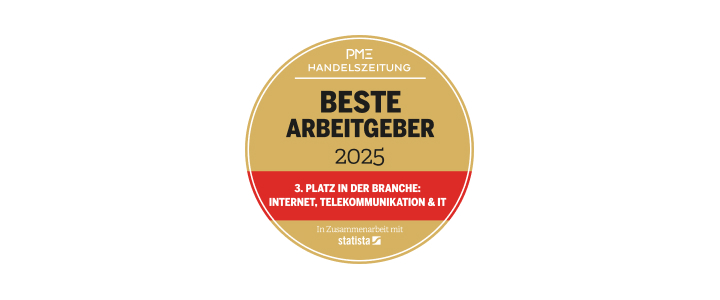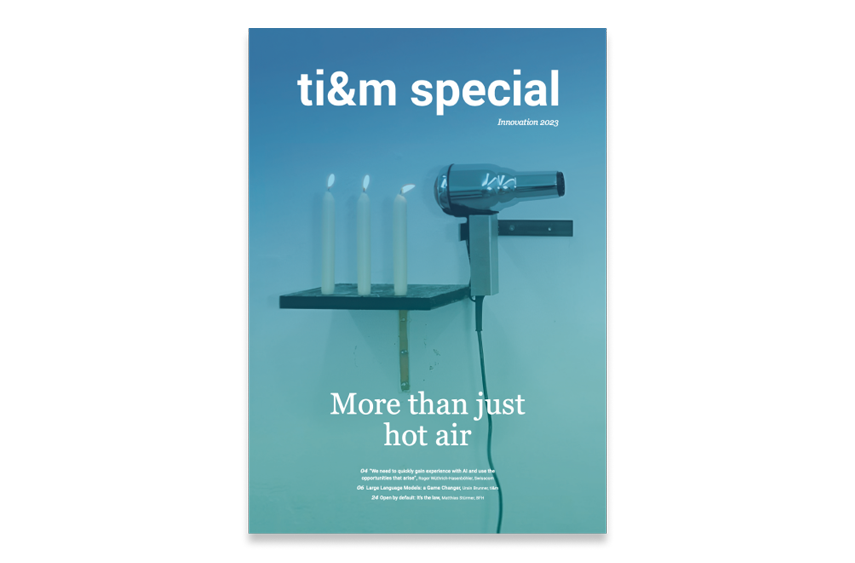The Zurich economic area is worldclass. But it wasn’t always this way. Despite good conditions, it took the region a long time to reach this position. And maintaining it is hard work. But today the Zurich economic area drives innovation at the international level. The region has assumed this role organically over several decades. One thing has been crucial to its success: cooperation between numerous stakeholders and teamwork at all levels. Economists say that this is the only way successful business locations can develop. And it requires many ingredients: excellent research, entrepreneurship backed up with talent and capital, public agencies and politicians that create a favorable environment for business. And, above all, effective networks. What’s more, the people in these networks must be willing to acquire new knowledge and share their own.
Teamwork is the key to innovation
Networks are also crucial in making the Zurich economic area attractive and boosting its development. Here the region’s growing startup community plays a vital role. The Canton of Zurich is ahead of all the other cantons in terms the number of startups and the level of investment. Zug on the other hand leads in the number of startups per capita. Startups are seen as innovation drivers. They therefore often attract media attention. However, they make up only a small part of the economy.
What are the drivers that have made the Zurich economic area the most signifi cant in Switzerland? Strengthening the region’s capacity for innovation requires ongoing impetus — from outside the area as well.
This means collaborating with universities, with small, midsized, and large companies and with startups. It means working with international companies that want to open a location in the Zurich economic area. Here Innosuisse, the Swiss Innovation Agency, provides vital support. But it is networks that drive innovation in the region — networks of all kinds, from cluster organizations to associations and initiatives. One example is the Innovation Zurich platform, which was launched in 2022. It connects research and entrepreneurship — across ecosystem boundaries. The platform aims to improve access to university research for SMEs and to boost their capacity for innovation. It was launched by the business development department of the Canton of Zurich, the Switzerland Innovation Park Zurich, and Greater Zurich Area AG (GZA), the area’s marketing agency.
Networks create value
The GZA has always seen itself as a bridge builder. Its funding comes from a foundation that was established as a publicprivate partnership. The economic crisis in the 1990s prompted the GZA’s establishment in 1998. Its aim was to promote the international appeal of the Greater Zurich Area as an economic hub. To this end, it highlights the advantages of doing business in the region to attract innovative enterprises. The network grew rapidly.
It started with the Canton of Zurich, the City of Zurich, and the Winterthur region In 2000, the Cantons of Glarus, Graubünden, and Schaffhausen joined them. Solothurn, Schwyz, Zug, Uri, and Ticino followed later. A growing number of private sponsors also joined the network. They now include some 30 private enterprises as well as the University of Zurich. ETH Zurich and two of its institutes also lend their support: the EMPA (Swiss Federal Laboratories for Materials Science and Technology) and EAWAG (Swiss Federal Institute of Aquatic Science and Technology). All of these sponsors work together to create sustainable value in the economic area.
Expanding the area and its sponsors strengthens its reputation abroad and boosts networking in Switzerland. A strong international profi le makes the GZA more attractive as a location for international companies that want to expand abroad. And stronger networks in the region mean that support will have maximum impact. This is crucial factor. The GZA provides companies with information on incorporating, looking for real estate, and recruiting talent. It puts them in touch with contacts at public agencies, in business, and at universities. Together with its partners, it supports them during the relocation process. The arrival of new international companies strengthens the future position of local companies and the economic area in the long term.
An excellent base for international companies
Over the past ten years, the GZA and the local business development agencies have helped over one thousand companies expand in the region. More than 100 set up a new location here in 2022 alone. Many of these companies are active in the life sciences, IT, and robotics, but more and more of them work in artifi cial intelligence. And networks are crucial when these innovative companies are choosing a location — networks such as Zug’s Crypto Valley or the region’s robotics and biotech ecosystems. To give a few examples, Ledger, a leading French blockchain company, chose Zurich in 2021. US startup Toggle Robotics set up a location in the city in 2022. And Peptone, a UK biotech startup, opened a facility in the region in 2022. The company was keen to expand its highly specialized research and development. With this in mind, the business development network helped Peptone fi nd the ideal premises in Bellinzona. Founder and CEO Kamil Tamiola says: “We want to be part of the upandcoming biotech cluster in the Greater Zurich Area.”





